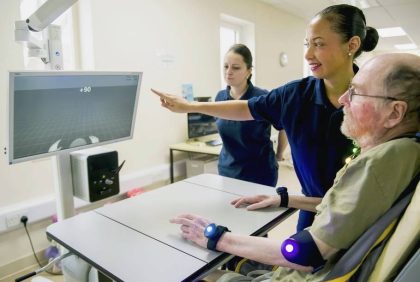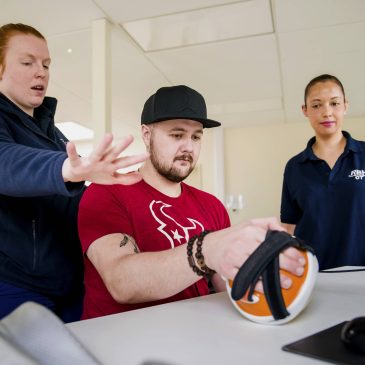
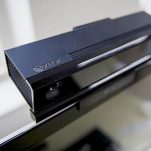
Understanding Your Needs
There is a reasonable thought that everything our centre offers is part of neurological therapy. Occupational therapy, physiotherapy, psychology and speech & language therapy have a part to play.
Our occupational and physical therapists do hold a collective passion for neurological treatment and may help with specific needs. The technology we offer could still lead the way for a number of issues.
This can assist with neurological damage following a stroke, or brain injury, or conditions such as MS, Parkinson’s and muscular dystrophy.
Difficulty walking, speaking, or with daily activities are shared symptoms for a range of medical problems. The same can apply to impaired memory, cognition, or coordination.
Following a detailed personal assessment, a programme to suit each patient’s needs will be created. A multidisciplinary team ready to assist with moving forward.
Supportive Technology
Our centre was the first in the UK to adopt MindMaze technology, to help with cognitive and mobility issues. Further investment has made the latest neurorehabilitation equipment available.
Interactive environments, such as those within MindMotion offer our brain the opportunity to repair. Stimulated mobility arises from other facilities, which include:
- MindMotionGo, offering game based, neurological therapy.
- Intento Pro, self controlled stimulation for upper limbs.
- SaeboFlex, to help hand, wrist and finger mobilisation.
Tyrosolution devices are used to assess movement and for improving balance, posture, or core strength. Other therapeutic equipment uses electrical stimulation to initiate muscle movement.
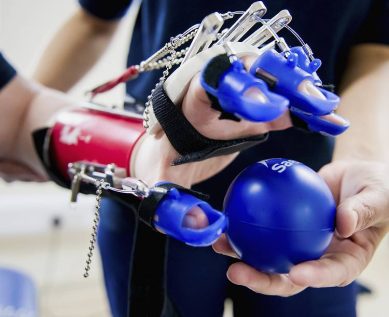
Movement can be relearned
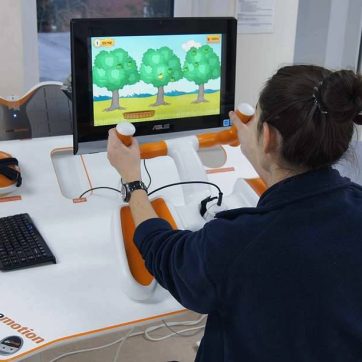

A Targeted Solution
The objective of an initial and ongoing assessment is to understand what is required to build a better future for each person.
Alongside the disciplines already mentioned, music therapy may be helpful, or advice from a dietician. The mix of therapies provided tends to be unique for each patient.
Should you wish, involving family can add insight and opportunity. Understanding circumstances at your home or work will normally assist with targeting.
Practical issues such as eating, dressing, or bowel and bladder management could require individual solutions. Specialist equipment may be beneficial in the home.
The core aim we share is to regain the highest possible levels of cognitive and physical function. Addressing details will simply make progress feel more valuable.
Dedicated Staff
Our team come to work because they believe everyone has the right to maximise their quality of life, physically, emotionally and socially.
This is achieved through therapy, education and a joint understanding of your circumstances. Going beyond the confines of physical symptoms, to address a range of health and personal issues.
Patients work in partnership with our team members, to achieve real goals that change lives. There is always time for discussion, or advice, to add understanding.
The facilities and technology our rehabilitation centre offers are remarkable. They still only succeed because people are committed to changing what may seem difficult to change.
We are constantly in awe of the determination our patients show. A sound reason to offer care and professional insight to help turn their hopes into reality.
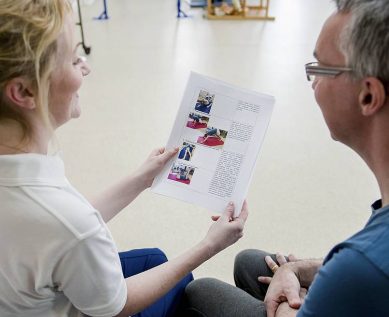
Ample time for friendly support
Our Facilities
Our patients and the people who care for them deserve the finest facilities, to ensure effective rehabilitation.
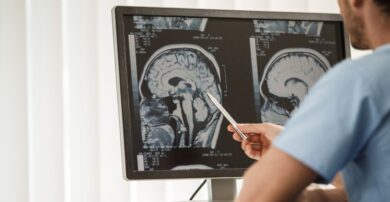
An adjacent hospital
The Royal Bucks rehabilitation centre is separate, although having our hospital in the same building can be helpful. A state of the art facility, with around 60 consultants covering every aspect of medicine.
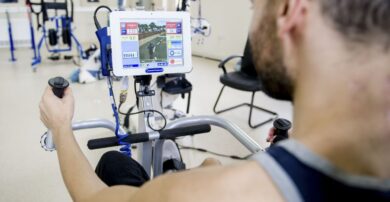
Advanced technology
Our centre is amongst the best equipped in Europe, with an anti-gravity facility based on NASA designs, varying types of exoskeleton, laser therapy and high tech aids for neurological rehabilitation.
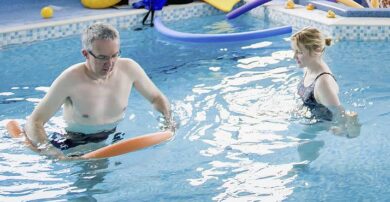
Hydrotherapy pool
An 8.5 metre pool heated to 34 centigrade, with resistance jets for exercise and a jet massage. The pool provides accessibility for all, with slides and hoists built in and is supported by experienced staff .
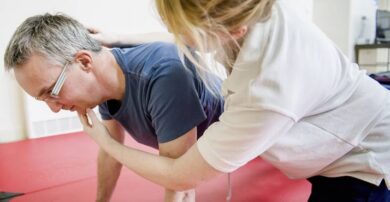
Skilled Physiotherapy
Physiotherapy is recognised for the value this is able to bring after trauma, or surgery. Where longer term conditions apply, our physios are leaders in the field and play an important role in recovery.
Speak to our team today
Get in touch to book an appointment, for further information, or to ask any question you wish. All contact is handled securely and confidentially.
Call us on
01296 678800
Email us
enquiries@royalbucks.co.uk
Message us on WhatsApp
